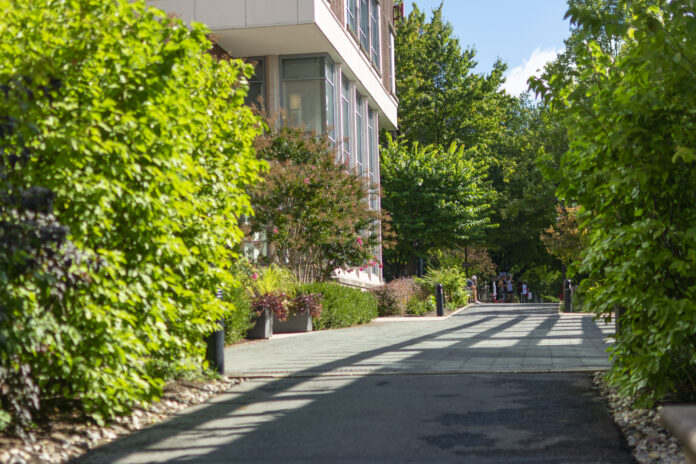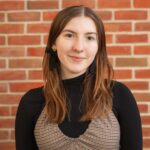The winter break in between semesters is meant to provide students, faculty and staff with much needed rest and relaxation. However, over this past break there was only one thing on the minds of every Muhlenberg community member: the omicron variant. This new, highly transmissible strain of the COVID-19 virus has forced the College’s administrators to revise their policies surrounding the pandemic. While not everyone is on board with these changes, the College administration claims that these decisions were made based on reasons and research.
So, what happens if you test positive for COVID? Dean Allison Williams says that when a student contracts the virus they must isolate for 5 days. On day 6, if they are asymptomatic and submit a negative test, they are allowed to leave isolation. However, Williams notes that, “After 10 days, students are automatically able to return without a negative test.”
“Running out of quarantine/isolation space would be incredibly challenging and would potentially jeopardize our in-person semester for everyone. This is far less ideal than asking individual students who test positive to go home for 6-10 days.”
Where this isolation is required to occur has been a point of contention for some. If a student lives within 300 miles of campus, they must return home to isolate after a positive test. Williams outlines the unfortunate reasoning behind this decision stating, “Running out of quarantine/isolation space would be incredibly challenging and would potentially jeopardize our in-person semester for everyone. This is far less ideal than asking individual students who test positive to go home for 6-10 days.”
Williams also emphasized the mental toll that on-campus isolation had on students in previous semesters. She explains that, “Some of this recommendation also takes into account the significant mental toll it takes on students to be in isolation housing on campus. Rooms that are empty other than their bedding, no one they know and love checking in on them regularly (even if just from the other side of the door), etc. For all of these reasons, in the fall, about 90% of our students who had to isolate or quarantine chose to go home without being required and much preferred that experience to ones that they had on campus in previous semesters.”
However, not everyone agrees with this policy. One anonymous student who tested positive for COVID stated, “I think the 300-mile policy should be revised because I live close to campus but I know people who are under 300 miles and quarantine would cause an issue. I think housing should be available for anyone who tests positive regardless of the miles.” Aside from this qualm, they applauded Muhlenberg’s protocol noting, “The school handled my positive test very well. They were informative and responded quickly once I had uploaded. My quarantine guidelines were kind of restrictive but it was to keep my family from getting sick.”
“I think the 300-mile policy should be revised because I live close to campus but I know people who are under 300 miles and quarantine would cause an issue. I think housing should be available for anyone who tests positive regardless of the miles.”
Others were not as enthusiastic about Muhlenberg’s guidelines. Ally Duvak ‘22 reflected on her experience after receiving a positive pre-arrival test saying, “I did not hear much after my positive test and my return to campus was essentially based on an honor system. There was no check-in, no secondary test and no one that I was told to follow up with. Though I did follow the protocols, I don’t know that everyone would. So I think that was risky. But I also think that the new policy wherein students have to test negative in order to return to campus has its risks, given that, especially with Omicron, it seems that people can still test positive for weeks (if not months) after having COVID.”
Requirements for professors have been instituted as well. Williams remarked that, “Each professor will accomodate in different ways depending on the type[s] of class[es] (performance, lab, discussion, lecture, etc.) all rely on different ways to keep up with materials. That said, faculty will work with students who are in isolation/quarantine, it just will not always look like a Zoom option because that is not always the best way, depending on the class.”
The anonymous student said, “Most of my professors were extremely nice and accommodating. I only had to miss one day… but they all made sure I had the information and work needed.”
Alex Caban-Echevarria ‘23, who also tested positive said, “I have had to miss more classes than I’ve been to this semester. Getting COVID in the first week has put a hindrance on my academic success, especially at the beginning of the semester. What should be easy readings and assignments have been difficult without the opportunity to discuss in class with my professors and peers. My professors have been understanding of the challenges that doing schoolwork while sick entails, but can only do so much to facilitate the same kind of learning without offering hybrid or virtual accommodations.”
With seven students testing positive after arrival to campus, approximately 300 getting the virus over winter break and 61 on-campus students testing positive since returning, COVID seems to be an unfortunate aspect to the spring semester that the campus community will be forced to cope with. When asked if the College has any plans to shift to virtual learning, Williams said, “Knowing this virus will be with us for the foreseeable future, it is important that we focus on an in-person semester and prioritize academic success, mental health, and student residential community. We also must continue stressing that the most important precautions are vaccination, hand washing, masking and isolating from others as much as possible when you are not feeling well.”
Katie is a Media & Communication and Political Science double major in the class of 2024. When she's not working on the paper you can find her blasting Taylor Swift, reading Jane Austen, or crying over Little Women (2019).























